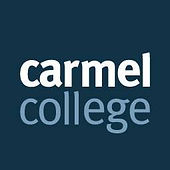
Our Careers Education, Information, Advice and Guidance (CEIAG) programme ensures our students are ready and prepared for the future through specialist support, experiences, opportunities, enabling them to make informed choices about their next steps after school.
We provide outstanding, impartial, and aspirational careers guidance that inspires students to thrive academically, spiritually, and personally.
“Whatever you do, work at it with all your heart, as working for the Lord.”
Colossians 3:23
Our commitment to ceiag
whole school careers strategy
Our provision is strategically led, embedded across the curriculum, aligned with the Gatsby Benchmarks and evaluated through the Compass Audit
inclusive & ambitious
We support every student, regardless of background or ability, to aim high and succeed in a changing world of work.
collaborative engagement
We work closely with parents, employers, further and higher education providers, and alumni to offer real-world insight and opportunities.
YEAR GROUP CEIAG JOURNEY
Starting in Year 7 and during each year that students are at school, students will develop their careers and skills awareness through a programme of events and learning both in and outside of school.
This careers journey will help them to understand how important it is to have the right attitude and work ethic as they progress through education and training to secure the place or role of their dreams.
Meet OUR CEIAG TEAM
Our CEIAG team can help with career decisions, option choices, applying to college, apprenticeships, university, voluntary work, part-time jobs, etc. and any other careers-related matter.
HOW WE SUPPORT OUR STUDENTS
As well as learning about and developing employability skills in discrete lessons, our careers education is also interwoven across subjects.
From guest speakers and trips to exploring ethical business in RE and climate careers in science,
our teachers and support staff have an important role and promote the variety of careers and opportunities available within their own subject areas as well as signposting to our specialist careers' team.
We also offer...
1:1 Impartial Careers Guidance
from our qualified Level 6 Careers Adviser
Mock Interviews & CV Clinics
With external professionals from a range of industries
complementary studies
such as Careers Fairs, taster days at local colleges and universities, STEM events etc, and bespoke programmes for key cohorts
Unifrog Access
for personalised careers profiling and tracking
SEND-Specific Guidance
Ensuring accessibility for all
learning for life days
Focussing on subject specific support and guidance linked to CEIAG.
OUR Partners
To ensure that students have the knowledge, skills and attributes to successfully secure specialist courses in post-16 settings and develop pathways to employment, we collaborate with:
-
Local Employers – for site visits, internships, and mentoring
-
Colleges & Universities – including Cronton & Riverside College and Carmel College
-
Apprenticeship Providers – helping students access alternative, high-quality pathways
-
Enterprise Advisers – offering strategic support and employer engagement
WORK EXPERIENCE
Our students have the opportunity to embark on work experience in Year 10.
This is a great opportunity for your child to gain practical knowledge and to develop confidence and key employability skills.
TOP TIPS FOR FINDING A WORK EXPERIENCE PLACEMENT
If you have a strong career idea, approach businesses and organisations in that industry
If you're not sure what you want to do next, a good starting point is to think about family, friends and neighbours and the type of work that they do and ask about completing your work experience with them.
If you need any help finding a work experience placement you contact our Careers Advisor/CEIAG Co-ordinator Peter Reay in school or via email
OTHER WORK EXPERIENCE OPPORTUNITIES
upcoming careers events
Event | Year Group | Date |
|---|---|---|
National Careers Week | All years | 1 - 7 March 2026 |
Annual Careers Fair | Years 9 , 10 & 11 | March 2026 |
Work Experience | Year 10 | 6th - 10th July 2026 |
The National Apprenticeship Show | Year 11 | TBC |
ADDING EXTRA VALUE TO OUR CEAIG PROGRAMME
Saints Peter and Paul especially values the links that we have built with employers over the years and current activities that local employers are actively involved in include:
-
Year 11 Mock Interviews
-
Year 10 Work Experience
-
Year 10 Careers Day talks
-
Year 10 Careers Fair
If you'd like to get involved, contact our Careers Advisor/CEIAG Co-ordinator Peter Reay
Telephone | 07543 693 582
.png)

















